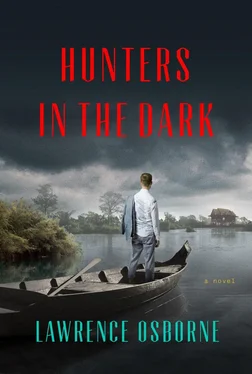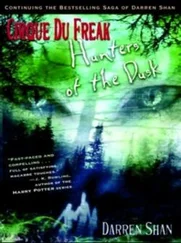It was in those moments at Nadimos under the awnings when the evening rain fell, smoking his shisha, that he realized how much he hated where he came from. He was certainly beginning to realize that he didn’t want to go back. Night by night the thought grew in immensity inside him until it no longer felt quite as incredible.
To begin with, there was no future for him in the little village of Elmer. It was like a posting on a colonial frontier, except that the frontier was merely East Sussex. Elmer had a green like most English villages. There were timbered pubs and gardens that petered out into cornfields, and paths with stiles and fields with stooks in summer. You could walk around it in three hours.
There was a railway station and an abattoir. It was sweet with old secrecies and it was home and would be for a long time. He hiked among the abandoned flint farmhouses above Bevendean when he dropped in on his grandparents. He had been going there all his life and it was like turning over stones that have been turned over already a hundred thousand times and yet what else was there to do but turn them over? He talked politics with his grandfather, an old trade unionist with a dark red china bust of Lenin on his front-room mantelpiece. Old Albert had once been a trombonist on a Cunard cruise ship and later a chauffeur for a famous professor at the University of Sussex. He was filled with quiet disdains. “Those blummin’ people,” he would say vaguely to his grandson, referring to the classes above him who were perhaps dying out as quickly as his own class. He complained bitterly about the trashy hip-hop blasting from the house next door as he was quietly trying to practice Count Basie tunes on his trombone in the basement. “Those blummin’ people, they play their blummin’ noise all night long at weekends. They’ve got no jobs.” The old man told him he should go and live in London. But Robert himself had never wanted to live there. He was not suited to a city like that. He had always wanted a quiet life with his books and a hint of woodland and sea out the window. Too quiet and withdrawn, his parents had decided. They ceased preaching to him about his ambitions. He didn’t have any.
One had to have a future. But, as it happened, he didn’t have one. The drawn-out economic crisis was gradually overwhelming the once eternal-seeming middle class and eroding it day by day. He was one of the eroded. His parents were barely middle class anyway. His father had been a customs official at Gatwick Airport. Their money was in a converted council house. The only thing that Robert had in his name was the fact that he had always wanted to be a teacher. He went every day to his little provincial schoolroom and stood in front of a blackboard and drew diagrams illustrating the connections between great English writers and kept the kids awake with the occasional sharp word. But to what end? It was little more than ventriloquy. Every day there was a long walk home to a cottage with odorous carpets and a kitchen with a hot plate. An evening playing YouTube videos and old jazz and waiting for something to come on the TV. The sweet bird of youth, in his case, had nowhere to perch and had not taken flight to begin with. His youth was a wingless dodo. One could go on and on and that bird would still not sing. You waited for life to begin and yet for some reason it did not begin. It hesitated while you wondered about the risks. You stood in the wings of your own play, afraid to walk onto the boards and begin.
He had a sense, meanwhile, that the country’s fortunes were not going to recover for a very long time, perhaps centuries. He was never going to be as comfortable as his father, or even his grandfather. The machine of progress had begun to go backward, and like an Irish navvy a century ago he was better off emigrating. Only there was nowhere to emigrate to. Nowhere that would take him in and give him employment. The world which had once been wide and commodious with America on the horizon had gradually become small and anxious and walled-off. His parents didn’t understand it, and neither in a way did he.
—
The embankment lamps came on. How had the day passed so quickly? The swallows were out. Along the roads came the bulbs of pushcarts. It must have been that most surprising thing, contentment, an onset of happiness. The happiness that never is.
The bridge was alive with motodops. The hive stirred and he felt as if his childhood had been returned to him. Only twenty-eight, and there was no reason ever to feel otherwise. So what a con his life had been up to then, burdening him with things that were not his, and how long it had taken him to find a place which disburdened him. But there it was. Now it was the first cool hour and the phone shops on the far side of that road and the clinics with their blue crosses — Clinic Nouvel! — were as alive as little bazaars. He got up and walked back the way he had come. In front of the guardian lions and the cannons was a pedestrian bridge, people lounging over the river. Below, blossoming cafés, outdoor tables, the thin, elegant young men in their clinging ironed shirts. A place called the River where the handsomer set gathered, the fans stirring a hundred paper napkins. The nights here were soft and aimless and endless. He walked back into the town center. On the pavements, families drinking cans of winter-melon tea with straws. On the televisions, Khmer music and soap operas and the children transfixed. There were fairy lights strung across the streets and beggars hanging by the river wall moving toward him as if they knew already how soft and young his thoughts were. They came out of the darkness with toys and books about Pol Pot and the eternal words one dolla .
He moved through the twilight quietly until he was at the White Rose on Street 2, a place marked in all barang guidebooks. It was empty so he went to the first-floor balcony. He sat under painted lampshades and plastic vine leaves and ordered lok-lok, fried morning glory, a baguette and an Angkor beer. In the Lean Hoa Chinese School opposite, a mass of schoolgirls scattered in slow motion toward the gates: they looked up at him. There was always a curiosity in the eyes here. It had not yet been eradicated by familiarity or contempt. A few drops of rain fell and there was a flash of soundless lightning. By the time he had walked back to the hotel it had become a fine warm drizzle. A small group of drivers waited in the courtyard playing cards by flashlights attached to their heads. Robert hesitated before going up to his room; he wasn’t quite ready for boredom. The sister hotel to the Alpha, divided from it merely by a flimsy wall, was the Omega; it was a riot of lecherous neon advertising the massive KTV next to it and a sauna in the lobby, whose denizens — in the absence of any clients — sat around on the sofas looking up at a TV. The Alpha and the Omega. But it was at the Alpha that he lingered. He soon found a kid called Ouksa who agreed to drive him around the next day for a few dollars. He had no plan but he wanted to visit a temple and say a prayer for his parents.
The “kid” was in fact about the same age as himself, in square-tipped shoes and a knock-off Tommy Bahama camp shirt with a black-and-white Mojave tile pattern, and he said he often drove the Chinese people staying at the Alpha or the Omega, but usually the Omega.
“I can start at six,” he said hopefully.
“I think nine is a better time,” Robert said. “Come at nine.”
“Where we going?”
“We’ll go to a temple. Do you know a temple?”
The kid held up four fingers.
“There’s four temples?”
“Four I know.”
“Then we’ll think about it tomorrow.”
Ouksa shook his head for some reason.
“I can take you winery.”
“I’ll think about the winery too.”
Читать дальше












